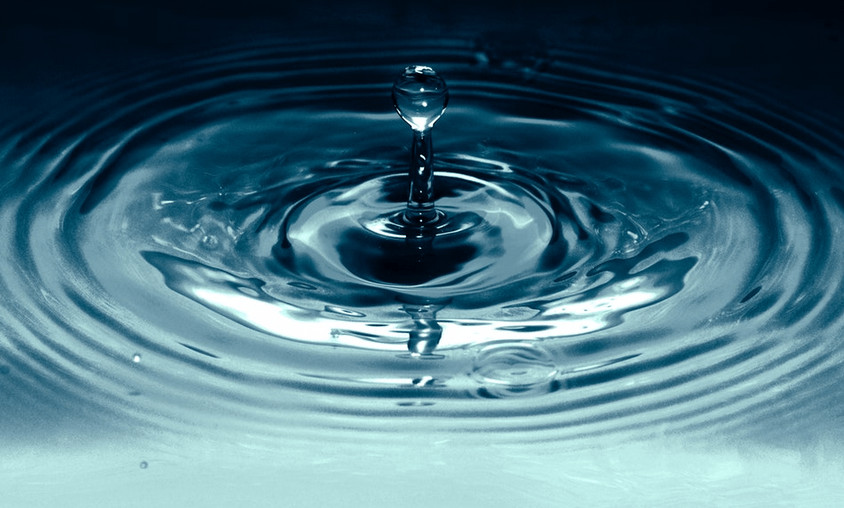H20 Health: Is Spring Water Healthiest Kind?

Benjamin Franklin, one of the founding fathers of the United States of America and the face of the 100 dollar bill, was wont to say: “When the well is dry we will know the worth of water.”
This, of course, is an ancient saying probably going back as far as biblical times, pointing to the importance of water in our daily lives. Water is the greatest source of life on Planet Earth. A human being can live for over three weeks whilst eating nothing and drinking only water. It truly is a remarkable substance.
Water is the most basic human necessity. It makes up about 60% of our total body weight, and even our bones are nearly 25% water in their composition. It is also the only natural substance that appears in all three forms: as a solid, liquid and gas!
Really, we can go on and on about the importance of water consumption and the roles it plays in our bodies, but now that we get the gist of it, let’s get down to the question that I want to address. Which type of water should we be drinking?
Are There Different Kinds Of Water?
H20 is the world’s most popular molecule. It’s colorless, odorless, and tasteless and has totally neutral pH level. So how could it be that on one hand, with a little salt added, it can be the cure to almost anything and on the other, we can’t drink the water in Mexico?
You guessed it; it depends on the type of water! And I’ll bet you’ll be surprised at the stark differences between each of the varieties of water. There are many different sources: distilled water, natural spring water, mineral water, purified water and more. So there really are many choices. Throughout this article, we will take a look at the different sources and their health benefits (or lack thereof) to determine which water is the healthiest for all of us.
Distilled Water

Distilled water.
What is it?
Most cosmetics and pharmaceutical products use distilled water because of its purity.
Should we drink it?
The debate about distilled water is that the trace elements and minerals are removed. Essentially, it is “dead water” – it kills everything, good and bad. Therefore, if you are sensitive to certain elements contained in drinking water, distilled water is for you. However, if you are looking to gain a tad nutritional value, you are better off going to a less refined source.
The process for distilling water is very similar to essential oils. It eliminates impurities and electrolytes. In fact, you can very easily make your own distilled water at home if you have the time. You’ll need:
- A 5-gallon deep pot.
- A concave lid.
- Ice (Not essential, but will speed up the condensation process).
- A glass bowl that floats.
Fill the pot with as much water as you can, because the end result will be a much smaller amount. Place the glass bowl into the pot and place the lid upside down on top. Then pour the ice into the upside down lid. The ice is designed to cool the distillate in order to speed up and improve the condensation process. Turn up the heat and after a while, voila! Your distilled water will be waiting for you inside the glass bowl.
Purified Water
What is it?
Similar to distilled water, purified water is stripped of minerals. Reverse osmosis, also known as deionization, is one method of purifying water, but it’s more frequently purified using methods such as carbon filtering, microfiltration, and ultrafiltration.
Should we drink it?
There are different requirements for purification in order to meet the legal definition of purified water, so the advice I gave for distilled water applies here as well.
Mineral Water
What is it?
Mineral water contains various minerals, such as magnesium and calcium. The mineral sulfur, if present, provides the water with a foul smell. The water may also look orange or reddish if it contains iron. If you hear the term “hard water,” it likely a synonym for mineral water.
Should we drink it?
In order to meet standards for consumption, drinkable mineral water contains a minimum of 250 parts per million of minerals. Additionally, it must come from a physically protected underground water source. Make sure that the mineral water you drink is certified by the FDA to avoid harsh minerals.
Spring Water

Spring water.
What is it?
Spring water comes from an underground formation which flows naturally to the Earth’s surface.
Should we drink it?
Spring water comes from a more natural source, and is not as filtered as purified or distilled water. Therefore, the FDA has strict regulations to preserve the safety for consumption. One can get the benefit of light mineralization by consuming spring water.
Which Type Of Water Is Healthiest?
There are also sources of water such as an Artesian Well and Fluoridate. Ultimately, choosing which water to consume depends on the mineral content you are seeking to drink. If you have a light stomach, purified water is probably best for you. Harder water is mineral-rich and, under FDA guidelines, heavier on the stomach but more beneficial nutritionally. For further study, one can read the regulations set by the FDA.
Well, what is the healthiest type of water? It depends on who you ask. In my opinion, spring water is the best type of water to drink regularly. It’s filtered naturally by the earth in many more ways than we can understand and it contains 30-40 trace minerals that our bodies need. It’s how we’ve been drinking water for millennia, it’s undiluted, and you’ll be drinking from the teat of Mother Nature.
Ask the locals in your neighborhood where they get their water, you should be able to pick it up at the local supermarket or even find a spring to go fill up your jugs for free. You could also find spring water online, which would be a little more expensive, but still very well worth it. Water is the best thing for us, so why not get the best water!
The Benefits Of Drinking More Water Explained

Fill up the cup!
Now that you’re educated on which type of water to drink, consider the quantity. Our bodies are about 60% water. Sweat, waste release, and evaporation keep the liquid flowing out, so you need to be certain to replace that deficit. The water in our bodies allows for fluid (pun intended) transportation of nutrients, regulation of body temperature, and digestion. Just like you grease your bike chain to keep it churning smoothly, give your body the fluids it needs to function.
Your physical health depends on water. This liquid powerhouse flushes toxins to clear inflammation… whiteheads no more! Kidneys flush out the waste that our bodies don’t need, relying on water to wash it away. Similarly, the colon needs fluids to keep things moving. Dehydration can go hand-in-hand with sickness, so help your body bounce back from the sniffles by drinking. Using our muscles makes them lose water, which in excess can make them tired. Give them the energy boost they need by taking a sip during exercise!
In addition to our bodies’ need for water, our mental states benefit immensely from hydration. Drinking water can boost productivity and concentration by keeping people alert and refreshed. Dehydration can cause exhaustion, aching, and pain, so combat strains, hangover, and fatigue by drinking up! Lastly, if you’re looking to drop a few, stay hydrated to feel full so as to control calorie consumption. When we “need a snack” it’s often dehydration that we mistake for hunger.
For a vibrant, refreshed, ready-for-anything mind and body, make sure to carry that water bottle with you wherever life takes you!
Check out our article on the Benefits Of Drinking Parsley Water!
Conclusion
The various types of water have different levels of purity, minerals, and price. Finding the healthiest water option for your stomach’s and wallet’s needs is an individualized process. Make an educated decision to do what’s best for you. No matter which option you choose, make sure to drink enough, depending on your diet, body mass, and level of exercise. You can calculate your water needs, but it really comes down to constant drinking to keep things flowing.


